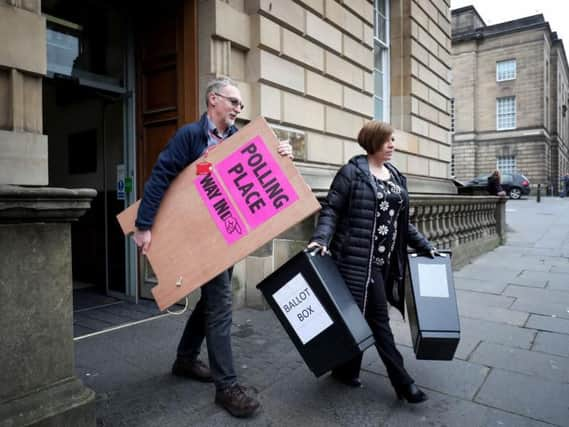British voters set to be undeterred by weather, experts claim


Although studies have shown in the past that bad weather can affect voter turnout in other countries, including the Netherlands and the United States, the British electorate are generally not put off by rain.
Election expert professor John Curtice, of Strathclyde University, said previous elections did not seem to be affected by poor weather conditions.
Advertisement
Hide AdAdvertisement
Hide Ad“We’ve had one or two general elections when it’s been raining in some parts of the country and not in another and there has been no significant variation in turnout,” he said. “We live in a country where a bit of drizzle is commonplace.”
Data compiled by FTI Consulting earlier this week found that five per cent of Labour voters said they would be put off voting by rain, compared to just four per cent of Tories.
Historically, it has been claimed that Labour voters are more likely to be turned away by bad weather than Conservatives, due to,it is claimed, a stronger sense of civic duty in Tory voters, who are typically older and more traditional. It has also been argued that Labour voters are less likely to have cars to take them to polling stations in the case of bad weather.
Professor Ailsa Henderson, head of politics and international relations at Edinburgh University, said that young people were more likely to be deterred - while older people and those with mobility problems would be likely to be transported to the polling station by party workers.
“It could well affect the youth vote,” she said. “But ironically, it may not affect those who are older and less mobile as they will be on party lists and will be taken by car or bus. But it tends not to work along party lines.”
Instead, she said, turnout is likely to be higher in close-run elections and those where voters believe their vote will make a significant difference.
“If it is a close election, it is likely to increase turnout,” she said. “People are also more likely to vote if they feel a sense of community with the electorate or that political level.”
However, she said the turnout figures could prove different in Scotland and the rest of the UK.
Advertisement
Hide AdAdvertisement
Hide Ad“It is a close election in the UK, which could boost turnout,” she said. “But in Scotland, people might not see it like that, they might feel they know which party is going to win here. It is not clear what the turnout is going to be.”